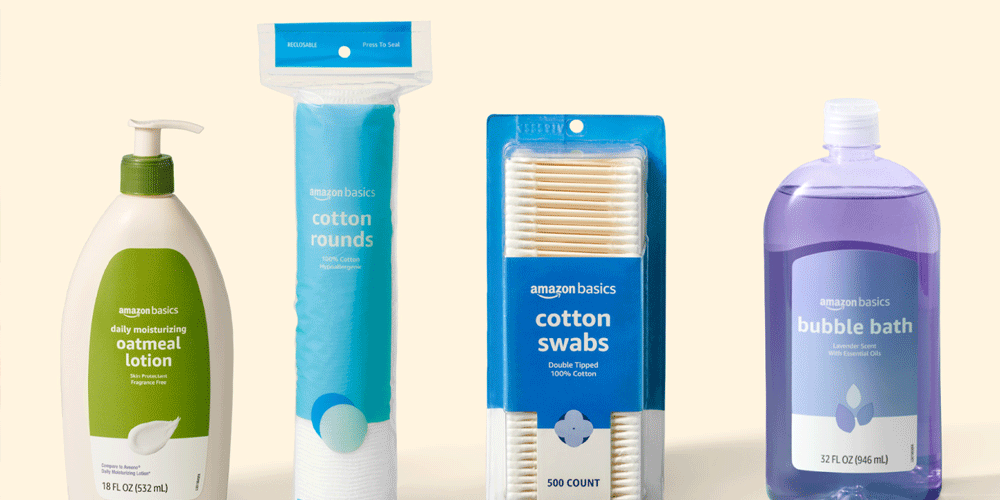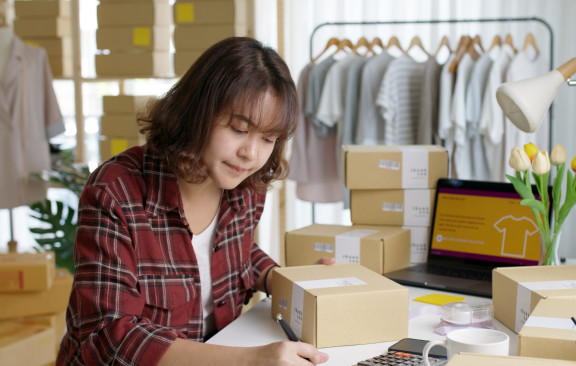What is the best product to private label and make profits?
💡 Quick Answer: The best product to private label and make great profits is premium insulated water bottles. People are becoming more and more eco-conscious and appreciate the convenience of easy hydration with a busy lifestyle. Premium water bottles have rising popularity, great profit margins, and easy customization for your brand means you’ll easily get off the ground with this trending product.
So you want to sell online and need a winning idea?
Heard about private labeling and keen to find out more?
If the mysterious ways of private labeling have caught your attention, you have excellent entrepreneurial intuition! Private labeling (soon not to be not so mysterious anymore) is a savvy way to cement your brand in the market and make big profits in the eCommerce realm.
In 2022, private labels made up almost 20% of the global fast moving consumer goods (FMCG) market, and many brands have made their fortune with this mode of production. While others again use it as a stepping stone before starting up their own manufacturing operations.
But what exactly is private labeling, and which products are best suited to it? In this article,we’re going to unpack the practice of private labeling and give you our Top 10 favorite private label product ideas to get you started on your road to success.
What is Private Labeling?
Private labeling is when you purchase products from a manufacturer and sell them under your own brand name. In this business model, the products are manufactured by a third-party supplier but sold under your own brand. You would work with the manufacturer to design and product products that meet specific requirements, including the packaging and branding. Private labeling is a very common strategy used to offer unique products to customers, increase your product line without investing in manufacturing, and bring in higher profit margins.
Let’s take a look at how to define private labeling and how it’s different from other eCommerce models, such as dropshipping, wholesale selling/buying, and white labeling.
Private Labeling vs. White Labeling
First up, there is sometimes confusion around the terms ‘private labeling’ and ‘white labeling – which are similar, but have some important distinctions.
Both white and private labeling entails employing a third party to produce the goods that you’re going to sell, i.e. you’re not running your own manufacturing facility or buying products from a wholesale supplier.
With private labeling, you nevertheless still get to dictate most of the design and specs of the product in question. With white-label products, on the other hand, you’re buying a supplier’s existing product and simply adding your logo to it.
With both private and white labeling, your branding appears on the products, so the consumer doesn’t see any sign of the third-party manufacturer.
Private Label Dropshipping and Wholesaling
Dropshipping describes a particular mode of fulfillment (rather than production). With dropshipping, you never hold any of your own inventory and instead, purchase products individually from the supplier for each order in your store. So with private label dropshipping, you’re still dropshipping but asking your supplier to add your branding on the product. You still never see the product (they would ship it directly to the customer) but your branding is on the product. If you want to do private label dropshipping, you would need very efficient communication with your suppliers.
Wholesale selling describes who you’re selling to, which in this case is other businesses (B2B) rather than individual customers (B2C). So you could private label (i.e. work with a manufacturer to create products to your specs) and then sell those wholesale online too.
Steps to Private Labeling
When you’re private labeling, you have to invest a certain amount of capital into getting your goods produced (the custom aspect of it often means higher MOQs), so you really want to be doing your product and market research before you make any big commitments.
Here’s an overview of the Steps to Private labeling
- Research a promising niche and identify suitable products
- Market and competitor research
- In-depth costing and budget analysis
- Create your product design specs and brand assets (logo etc)
- Find a reliable private label manufacturer
- Negotiate price and order your first batch of product
- Launch your site and/or sell on marketplaces (e.g. Amazon, eBay)
- Market your products
- Engage with your customers and make iterations for next product batch
Pros and Cons of Private Labeling
Now that we know how private labeling works and how to distinguish (or combine) it with other eCommerce models, let’s take a look at some of the reasons for giving it a go, or heading down another route.
Pros
- Consumers prefer buying branded products because it creates trust in the brand and provides peace of mind when it comes to quality
- It’s less expensive than in-house manufacturing, yet still allows brands to sell custom and unique products.
- An excellent way for small businesses to save money without sacrificing their vision
- More personalized and less generic products
- High profit margins
Cons
- The same manufacturer could have agreements with competing brands and make similar modifications for them – resulting in similar products on the market
- More customization of products means higher minimum order quantities (MOQ), which requires more up-front capital
- You need launch capital for things like branding, design, marketing, shipping, customer service and first product run. Although if you work smart, some of these can also be done on the cheap and/or by yourself
- If market demand changes before you’ve started selling, you could be left sitting on your product → Avoid this by doing your due diligence when considering private label product ideas during market research
As you can see, there are some very compelling reasons to go into private labeling. The biggest hurdle to any fledgling brand looking at private labeling would have to be budgeting concerns. However, resourceful entrepreneurs can source private label products for as little as $500 (depending on the product), so it really just depends on your approach.
When venturing into private labeling for high-profit margins, understanding the product life cycle is paramount. It allows businesses to identify products with longer growth phases, ensuring sustained profitability over time. By selecting products strategically and considering their life cycle, companies can invest in branding, marketing, and product improvements that align with the product's trajectory, maximizing profits throughout its lifecycle. This approach fosters long-term success by enabling businesses to adapt to changing market dynamics and capitalize on emerging trends while maintaining a competitive edge in the market.
Our Top 11 Best Private Label Product Ideas
Enough of the preambles! We hope we’ve managed to convey some of the excellent reasons for going into private labeling – whether you’re a small, medium, or large business. So without further ado, let’s get into our Top 10 private label product ideas.
1. Coffee

Who doesn’t need a cup of coffee to get started in the morning? With up to 75% of Americans drinking coffee every day, and 30%-40% of global consumers drinking coffee overall, it’s no secret that the coffee industry is huge. There’s an abundance of coffee producers and roasters around, which makes it an easy and lucrative product to private label.
Why it’s a good product to sell: Constant high demand that is unlikely to ever drop!
Successful Private Label Examples: Costo’s coffee brand Kirklands is a private label produced and roasted by Starbucks.
2. Baby Dinnerware

Why it’s a good product to sell: People are always having babies and don’t mind spending a little extra for their precious little ones.
Successful Private Label Examples: Australian Ela and Earth sells silicone baby dinnerware, which is becoming more and more popular on the market, but is putting its own twist on it.
3. Cosmetics

The cosmetics industry was worth $100 billion in 2022 alone and is forecast to keep growing at a rate of 6.85% for the next few years, so it’s a brilliant opportunity for savvy brands to enter this lucrative market.
Why it’s a good product to sell: Lots of product options and unwavering demand
Successful Private Label Examples: Amazon has started selling various of its own private label brands on the platform in recent years, one of them being Amazon Basics, which offers (amongst other things) cosmetics at affordable prices.
4. Sheets and Bedding

Sheets and bedding is another one of those evergreen product categories that is assured to never go out of fashion. After all, we all have to sleep somewhere, and the population isn’t exactly getting smaller. With data repeatedly showing bedding to be one of the highest-profit products, it’s no surprise it’s on our list of best private label product ideas.
Why it’s a good product to sell: High-profit product with constant demand and wide appeal
Successful Private Label Examples: Another one of Amazon’s private labels, Pinzon sells luxury linens that continues to grow its following of loyal fans.
5. Lunchboxes

You never realize how big of a topic lunchboxes are until you become a parent. Mini-humans need to eat an astounding amount of food, and they need to do so constantly. Otherwise, beware of the hanger attacks! Subsequently, the lunchbox market is HUGE, and a perfect private labeling opportunity, as you can easily put your own spin on design and specs (without too much hassle).
Why it’s a good product to sell: Very easy to private label with little design requirements
Successful Private Label Examples: YumBox sells a variety of popular lunchbox designs, with the Bento box being the general fan favourite.
6. Homewares

Homewares was about the only industry that saw a boom throughout the pandemic. Thelong time spent at home has left a definite mark on people’s buying behaviour who continue to flock to products to improve and beautify their homes.
Why it’s a good product to sell: Broad range of popular products big and small to make your mark on
Successful Private Label Examples: Flying Tiger Copenhagen sell a little bit of everything in the home and kitchen wares, crafts, stationary and gifts sectors, but have made a name for themselves with amazingly cheap, distinctively quirky products loved by the masses.
7. Food & Snacks

The packaged food category is a great industry for private labeling, as it’s cheap to produce and very easy to put your own spin on the product simply by modifying the packaging. We’d recommend looking into emerging niche snack trends, such as Keto, Gluten-free, Vegan, or Organic Baby Food. Keeping a close eye on trend analysis for the products you want to sell is super important.
Why it’s a good product to sell: Easy and cheap to produce
Successful Private Label Examples: Own-brand versions of groceries in supermarket chains, e.g. Great Value and Sam’s Choice at Walmart
8. Smart Backpacks

Now here’s a trend that we didn’t see coming: Smart Backpacks. Just about everything seems to be smart these days, but this latest addition to the family is actually looking very promising! With charging ports to keep your devices powered and a few other useful tricks, these commuter bags are bound to take off and stick around, too.
Why it’s a good product to sell: It’s an emerging trend that will keep you ahead of the pack.
Successful Private Label Examples: Arizona-based Nordace is slowly but firmly establishing itself as the go-to brand for smart travel gear.
9. Yoga Mats

The yoga trend isn’t exactly news, but it continues its spread throughout the Western world, with new yoga teachers popping up left right and centre. No surprise that a gaggle of savvy brands have cottoned on to supplying the masses with their gear. Since there are relatively few variables with yoga mats, they’re a lucrative and easy-to-produce option for private labeling, and can easily be complemented with other yoga products (e.g. blocks and straps) further along the way. Be sure to always pay attention to the trend analysis of each product.
Why it’s a good product to sell: A thriving market and easy to customize
Successful Private Label Examples: Yoga Zeal has combined people’s love of yoga with eco-consciousness and are killing it with their cork yoga mats.
10. Clothing and Apparel

There are numerous brands taking advantage of the ease of private labeling clothing, especially simple designs such as T-shirts. And while this industry seems to be thriving and in constant demand, many an apparel brand ends up just about breaking even when you get to the net margin. So make sure you run your numbers before you commit in this field.
Why it’s a good product to sell: Lots of options and can usually start with smaller order runs
Successful Private Label Examples: Kmart successfully private labels lots of clothing items that are sold for more money elsewhere, offering them at a fraction of the price.
11. Water Bottles

With sustainable awareness growing amongst consumers, more and more people are catching on to the trend of owning their own reusable water bottle. The great thing about these modern water bottle designs is also that they’re insulated and will keep your drink cold – a great motivation other than reducing waste for buyers far and wide.
Why it’s a good product to sell: It’s a growing niche that’s projected to grow by 4-6% over the coming years.
Successful Private Label Examples: Hydroflask and Yeti both market very similar water bottles, which is a dead giveaway for them being private labeled.
8 Private Label Suppliers to Work with
Now you have an idea of the best private label product ideas, let’s take a look at the next important piece of the puzzle: suppliers. The SaleHoo Directory is a database of thousands of suppliers around the globe, many of which offer private labeling. The database is searchable through a host of useful filters so you can find exactly the right supplier to suit your needs. To give you an idea and get you started on your path to success, here’s a snapshot of 10 great suppliers you could work with. They all offer private labeling and ship globally 💁
🇺🇲 Pooki’s Mahi – Coffee Pods
Location: California, USA
Products they provide: Coffee products, sugars, and gourmet salts
Pooki’s Mahi is a small, local coffee supplier based in the golden state. They focus particularly on coffee pods, which have been a rising trends for years now (especially for city-dwelling folk with little space and time who love the convenience) and have amazing profit potential for private labeling.
🇳🇿 iLana Designs Ltd – Hats
Location: New Zealand
Products they provide: Hats, Visors, Totes, Scarves, Resortwear
iLana Designs are New Zealand-based millinery company specialized in working with retailers to custom-design their products. If you’re after a quality high-end fashion accessory option in the Southern Hemisphere then this quality set up could be just the ticket.
🇸🇮 Inteko d.o.o. – Ladies’ Fashion
Location: Slovenia, Europe
Products they provide: Hats, Visors, Totes, Scarves, ResortwearWomen's Shirts, Women's Blouses, Women's Jackets, Women's Coats, Women's Underwear, Women's Socks, Women's Accessories, Women's Plus Sizes
European Inteko is a veteran in the fashion business with 32 years’ of experience under their belt. They offer a large and varied catalog with options to add your own logo and a relatively low MOQ at $500, making it the perfect stepping stone for those wanting to enter the ladies’ fashion industry.
🇮🇱 Finesse – Cosmetics
Location: Israel
Products they provide: Dead Sea Cosmetics
Have you ever heard of the miraculous benefits of the Dead Sea? This inland sea is coined the world largest natural spa, and Finesse’s beauty products are based on this unique mineral treasure and are enriched with plant extracts, vitamins and oils. All products are manufactured in Israel, can be private labeled, and shipped around the world.
🇺🇲 UjENA – Ladies’ Swimwear & Fashion
Location: California, USA
Products they provide: One-piece Swimsuits, Tankinis, Plus Size swimwear, Dresses, etc.
With 37 years in business, you’ll know you’ll be in good hands with California-based swimwear producer UjENA. With all their products designed and made in the US, you can really set your brand apart by private labeling with this seasoned producer.
🇺🇲 Cosmetics Made in USA (CMIUSA) – Cosmetics
Location: California, USA
Products they provide: Creams, Serums, Body Care, Mask, Compressed Masks, Bath and Body
Cosmetics are one of the most lucrative and steady industries out there and provides many of the best private label product ideas. If you’re feeling confident and want to start with a bang, why not partner with CMIUSA? With their 22 years’ of experience and broad product range, their 300 MOQ may work to your advantage.
🇺🇲 Solar Fashions – Eyewear and Accessories
Location: New York, USA
Products they provide: Eyewear, Sunglasses and Accessories
Aside from the fact that many people require glasses to be able to function day-to-day there are few who don’t want to protect their eyes on a sunny day. Just a couple of the reasons why eyewear is an extremely lucrative private label idea. This New York-based supplier has 28 years in business and even suppliers high-quality product photographs to their customers.
🇬🇧 FRSH Scents Ltd – Air fresheners
Location: United Kingdom
Products they provide: Car air fresheners and diffusers
UK-based FRSH Scents have made great-smelling cars an art form. With a broad range of different freshener designs, from the classic cardboard version to high-tech diffusers, they can produce many great private label product ideas. An added bonus is their Offset Program with The Plastic Bank which has removed 92,000kg of plastic ocean waste to date!
Conclusion
So there you have it! We hope we’ve managed to inspire you to give private labeling a go and start on your path to success. As we’ve seen, private labeling gives smaller and new businesses the chance to set themselves apart in a competitive eCommerce market, really build their brand up and create a loyal following.
If you’re interested in receiving more support and access to thousands more suppliers, why not check out SaleHoo Directory? Or if you have any eCommerce-related questions, our support team of experts is available 24/7 on live chat.









